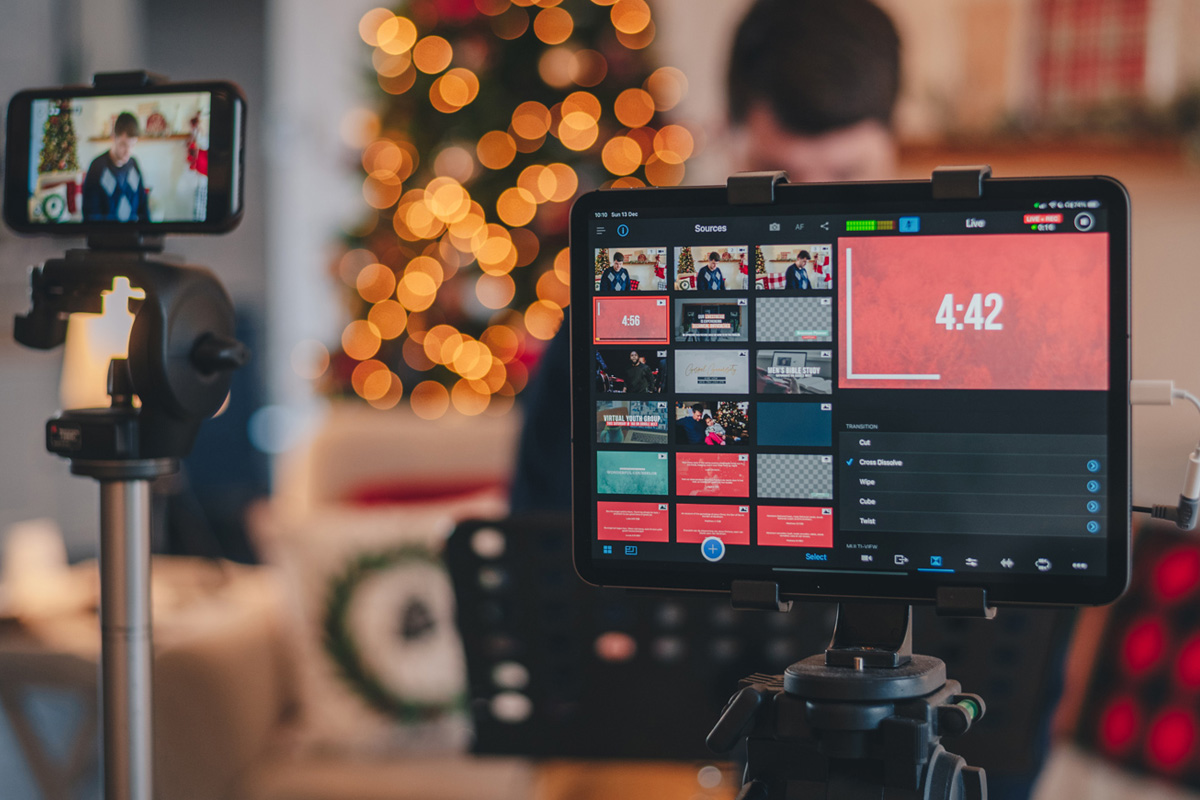Creating a More Just and Merciful World
What Is the Creator Economy?

Those pursuing a bachelor’s degree in communication to launch digital media careers are likely to have many job options. This is especially true for those with the skills to be content creators, including writers, video producers, podcasters, photographers and others, as they will find their skills in demand by companies, agencies and other organizations with stories to tell.
In recent years, however, a growing number of creators have opted to join the creator economy and become influencers or content entrepreneurs, establishing their own brands and businesses by creating content to build audiences and monetize that content in various ways, including through paid subscriptions, selling advertising or creating and selling related goods or services.
Through this model, a photographer can launch an Instagram feed to promote their work or create and sell an online photography course. A writer can start a blog and a paid subscription email newsletter. Someone with video skills and an interest in fashion can create a YouTube channel. A sports fan can launch a podcast about his favorite team. A media-savvy video game player can establish a presence on Twitch.
Low Barriers to Entry
The creator economy has become viable thanks to the rise of the Web and social media, and the decentralization of traditional media out of the hands of major media companies. Now the barriers to entry to create and share content are lower than ever before.
The creator economy has been described as a segment of the passion economy because many creators are those who turn their “passions”—their interests and hobbies—into income-generating ventures, if not always full-time employment.
According to Influencer Marketing Hub, the total size of the creator economy is $104 billion, with about 50 million creators participating in it. This includes 38 million YouTube channels, 11 million Twitch streamers, and 2 million podcasters, among others.
Responding to the growth of the creator economy, many of the most popular social media platforms have begun to woo creators with tools and programs that offer creators a relatively easy way to publish and promote content in exchange for a cut of the revenues generated. The potential downside of one of these arrangements is that the platform can at any time change its policies or algorithms, making it more difficult or impossible for the creator’s audience to access the content.
Building an Audience Is Key
While some who build large audiences—most often celebrities and other public figures, though not always—make a significant amount of money from their content, many find it challenging to build a sizable and profitable audience. Though, according to a recent study of content entrepreneurs, more than half are making enough to support themselves.
These numbers are sobering, as are the numbers associated with starting any business. But if you have a passion you believe you can share with an addressable audience, and the skills—which can be developed through the undergraduate Carlow communication curriculum—to create content that an audience will value, joining the ranks of the creator economy might be the right choice for you.
Start your digital media career with a Bachelor of Arts degree in communication from Carlow University in Pittsburgh. Choose from multiple program-specific tracks, including a concentration in digital media. Each track will provide access to hands-on learning opportunities, such as developing your news writing and research skills or polishing your broadcasting skills. Classroom and real-world practice help you hone problem-solving, team-building, and critical thinking skills, all highly sought after by employers.
